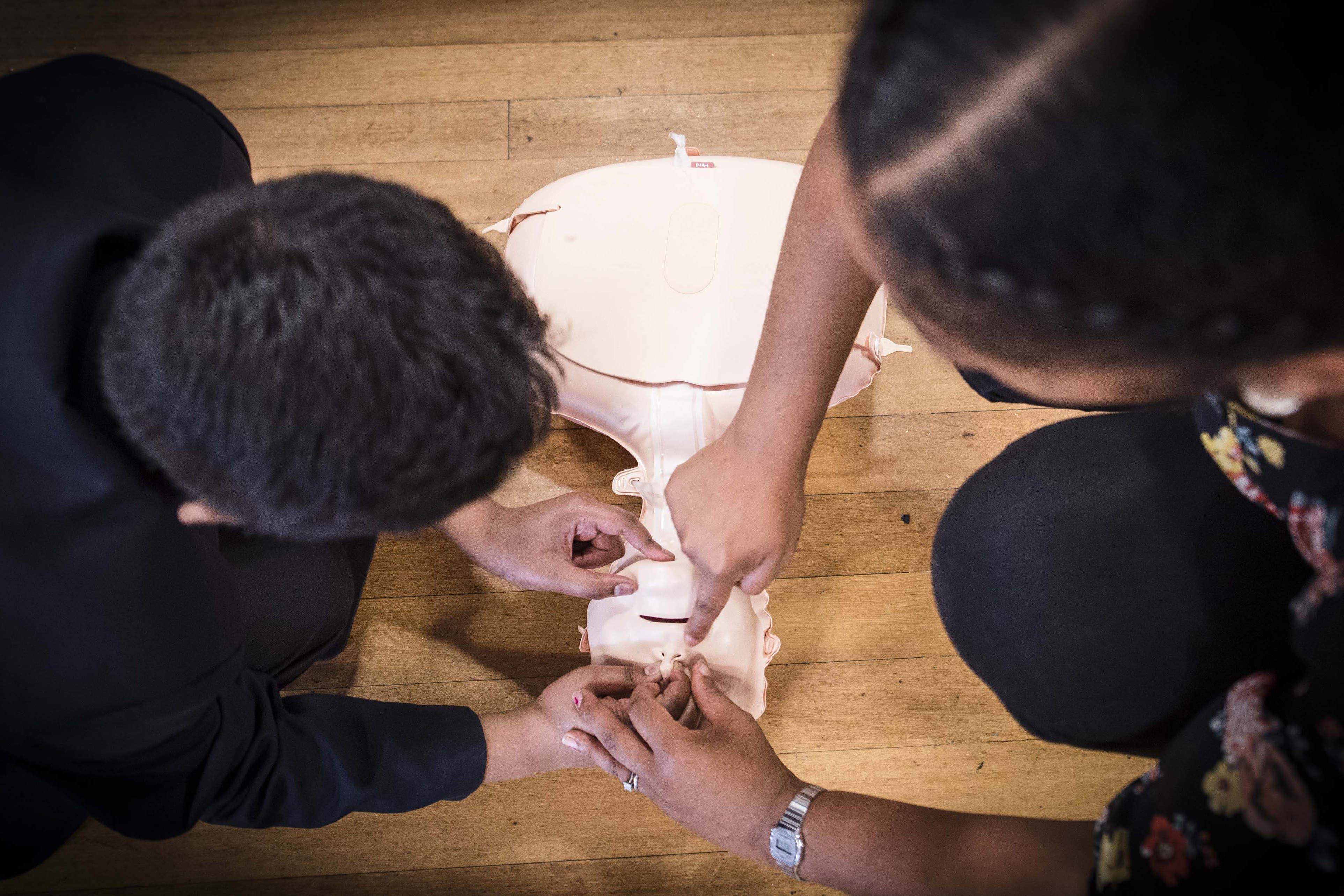Women ‘less likely to receive CPR in public’
Cardiopulmonary resuscitation (CPR) can save a person’s life when their heart suddenly stops working.

Your support helps us to tell the story
From reproductive rights to climate change to Big Tech, The Independent is on the ground when the story is developing. Whether it's investigating the financials of Elon Musk's pro-Trump PAC or producing our latest documentary, 'The A Word', which shines a light on the American women fighting for reproductive rights, we know how important it is to parse out the facts from the messaging.
At such a critical moment in US history, we need reporters on the ground. Your donation allows us to keep sending journalists to speak to both sides of the story.
The Independent is trusted by Americans across the entire political spectrum. And unlike many other quality news outlets, we choose not to lock Americans out of our reporting and analysis with paywalls. We believe quality journalism should be available to everyone, paid for by those who can afford it.
Your support makes all the difference.Women are less likely than men to be given CPR if they fall unconscious and their heart stops beating in a public place, according to a new study.
Bystanders could be “worried about hurting or touching women” which may prevent them from delivering life-saving cardiopulmonary resuscitation (CPR) in the street or other public locations, academics suggested.
Researchers urged people to learn how to perform CPR and to give it “without hesitation” to anyone who needs it regardless of their gender, age or location.
Women experiencing a cardiac arrest are less likely to get the CPR they need compared to men, especially if the emergency happens in public. We don’t know why this is the case. It could be that people are worried about hurting or touching women, or that they think a woman is less likely to be having a cardiac arrest.
A team of Canadian researchers set out to examine the assistance given to people when they go into cardiac arrest – when their heart suddenly stops beating.
They analysed data on more than 39,000 cardiac arrests which happened outside of a hospital setting in Canada and the US between 2005 and 2015.
Almost a quarter (23%) occurred in public locations. The patients had an average age of 67 and 29% of the cases were in women.
Only around half of patients (54%) received CPR from a bystander.
Researchers found that in public locations women were 28% less likely to receive CPR compared to men.
In homes and other private places gender did not appear to be linked to whether or not a person received CPR.
But the researchers found that older people were less likely to receive CPR in private locations, according to the study which is being presented to the European Emergency Medicine Congress in Barcelona.
With every 10-year increase in age, men were around 9% less likely to be given CPR during a cardiac arrest. Women were 3% less likely.
Presenting the study, Dr Sylvie Cossette from the Montreal Heart Institute research centre in Canada, said: “We carried out this study to try to uncover factors that might discourage peoplefrom delivering CPR, including any factors that might deter people from giving CPR to a woman.
“We would like to study this issue in greater detail to understand what lies behind the difference. This could help us make sure that anyone who needs CPR gets it, regardless of gender, age or location.”
Co-author, Dr Alexis Cournoyer, from Hopital du Sacre-Coeur de Montreal in Canada, added: “In an emergency when someone is unconscious and not breathing properly, in addition to calling an ambulance, bystanders should give CPR. This will give the patient a much better chance of survival and recovery.
“Our study shows that women experiencing a cardiac arrest are less likely to get the CPR they need compared to men, especially if the emergency happens in public.
“We don’t know why this is the case. It could be that people are worried about hurting or touching women, or that they think a woman is less likely to be having a cardiac arrest.”